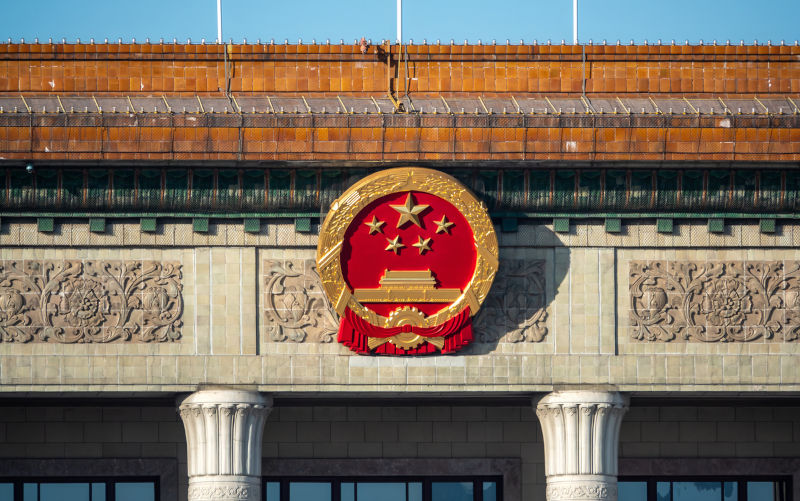Is the ‘China threat’ real or trumped up?
August 6, 2025
In recent years, the ‘China threat’ theory has become a prominent theme in Western political discourse.
At the 2025 Shangri-La Dialogue, US Defence Secretary Pete Hegseth called on East Asian nations to increase military spending, citing an “imminent” threat from China. Many anti-China hawks perceive this threat as spanning economic, technological and security domains.
But if viewed from within China, the so-called “China threat” has little to do with China’s actual intentions or behaviour. Instead, it reflects Western — particularly US — perceptions, anxieties and political considerations.
By definition, a threat implies a deliberate intention to cause harm. China’s foreign policy does not conform to this notion. It has consistently refrained from imposing its ideology, political system or economic model on other countries and adheres to a longstanding principle of non-interference in the internal affairs of others.
Rather than resorting to force, China advocates the Five Principles of Peaceful Coexistence: mutual respect for sovereignty and territorial integrity, mutual non-aggression, non-interference in each other’s internal affairs, equality and mutual benefit and peaceful coexistence. It maintains that all nations have the right to pursue development based on their own national conditions.
China also supports an open and rules-based trading system and has successfully resolved numerous border disputes through diplomatic negotiation. Even as it has become more militarily capable and assertive in defending its territorial claims in the South China Sea, the East China Sea and on the Sino-Indian border, China has not moved to expand its long-held claims, let alone resorted to the use of force in order to do so. This track record may have included missteps. But it does not suggest a state bent on aggression or global domination, and China has tied itself back to negotiation within the framework of international principles.
Why, then, does the “China threat” narrative persist – especially in the US?
One reason lies in the discomfort over China’s rapid rise. As China emerges as a major player in the global economy and technology sectors, it challenges the longstanding dominance of the West. For many, this shift provokes a sense of strategic and ideological insecurity. China’s advancements in 5G, artificial intelligence and space exploration have triggered fears of declining Western technological superiority.
Compounding this unease is China’s refusal to follow the Western path of governance. Its model — marked by centralised political authority, a greater role for the state in the economy and an emphasis on order over liberal freedoms — contrasts with Western democratic norms. For some, China’s success threatens not only global power dynamics but also the ideological foundation of the liberal international order.
Domestic politics further fuel the “China threat” narrative. In some Western countries, especially the US, portraying China as an adversary serves domestic political purposes. It helps deflect public attention from internal challenges such as inequality, political polarisation and economic discontent. China’s different political system and economic achievements make it a convenient scapegoat, especially for politicians seeking to galvanise nationalist sentiment or justify defence spending.
Strategic and geopolitical considerations also play a role. For the US and its allies, the “China threat” provides a rationale for strengthening military alliances and maintaining influence in the Indo-Pacific. Under former president Joe Biden, Washington frequently emphasised the need for democratic unity in the face of rising autocracies – an implicit reference to China.
This framing reinforces coalitions like NATO and the Quadrilateral Security Dialogue while legitimising increased defence budgets. But this narrative is dangerous. Framing China as a predetermined adversary risks transforming a complex, but manageable, relationship into an outright confrontation. History teaches us that perceived enemies often become real ones when consistently treated as threats. The more the US positions China as a rival, the greater the likelihood of provoking the very behaviours it seeks to avoid.
Is such an outcome in the US’ interest? Absolutely not. Both China and the US benefit immensely from the existing international order. Open trade, global stability and multilateral co-operation are necessary to address shared challenges like climate change, pandemics and nuclear proliferation.
As Paul Kennedy argues in _The Rise and Fall of the Great Powers_, historically, dominant states often decline not from external conquest but from the overextension of their power. If China and the United States exhaust themselves in mutual containment, both will lose. A more sensible strategy would involve collaboratively upholding the international order while sharing its burdens with other nations.
In this context, the international community should approach China’s rise with objectivity and restraint. China’s foreign policy since the 1970s has been largely defensive and adaptive. It has not sought to dismantle the post-World War II global system, nor rewrite its institutions or norms. This is the reality many in the West often choose to ignore. For its part, China has enabled this ignorance by failing to effectively communicate its foreign policy approach on the international stage. Western and Chinese policymakers alike should exercise caution in their rhetoric and avoid actions that escalate tensions or invite retaliatory conduct.
Pragmatic, confidence-building measures are needed to foster mutual understanding. China has consistently expressed willingness to engage in dialogue and co-operation. Western countries, especially the US, should respond by expanding diplomatic channels, promoting educational and cultural exchange and deepening economic partnerships. Collaboration, not confrontation, is the key to a peaceful and prosperous future.
Rather than perpetuating the “China threat” narrative, the international community, including China, should focus on common interests and shared challenges. Confrontation is not inevitable – but mutual understanding and co-operation are essential if we are to avoid it.
Reblished from East Asia Forum, 3 August 2025
The views expressed in this article may or may not reflect those of Pearls and Irritations.

